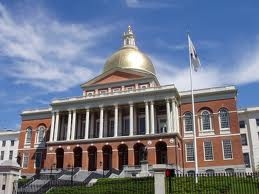BOB SALSBERG, Associated Press
BOSTON (AP) — The Massachusetts House gave unanimous approval Wednesday to a nearly $40 billion state budget that calls for an overall increase of about 3 percent in state spending and does not include any new taxes.
The focus now shifts to the Senate, which later in the spring will write and debate its own version of the budget for the fiscal year starting July 1. The two versions must then be reconciled before they are sent to Republican Gov. Charlie Baker for his signature.
The 156-0 vote in the Democratic-controlled House followed three days of largely choreographed discussions, during which lawmakers added about $76 million in spending for programs ranging from education to transportation to public health.
Lawmakers held closed-door meetings to consolidate many of the more than 1,300 amendments that were originally proposed to the budget. The consolidated amendments were then approved by the full House with minimal debate.
House Speaker Robert DeLeo said the budget was a fiscally responsible and thoughtful document.
“I am particularly proud of our investments in early education and care, elder affairs and substance addiction programs,” DeLeo, a Winthrop Democrat, said in a statement after the final vote.
The budget creates a $15 million reserve account to pay for salary increases for pre-kindergarten teachers and incudes $18.6 million to support full-day kindergarten programs.
It would also add $28 million for substance addiction programs.
The spending plan calls for a $159 million increase in state assistance to cities and towns, including a $55-per-pupil increase in education funding.
Republicans, who often vote against Democratic-backed spending plans, joined in Wednesday’s unanimous vote.
“I’m very pleased that the House budget places a priority on local aid for our cities and towns,” said Rep. Bradley Jones, the House minority leader. “I think there was a good faith effort to try to address a wide range of issues, while still maintaining an eye on the bottom line.”
House leaders stressed that for a second consecutive year they did not rely on any direct transfers from the state’s stabilization fund, better known as the rainy day fund, to help balance the budget. More than $200 million in capital gains tax revenue would be deposited into the fund, though another $150 million in capital gains taxes would be diverted to the general fund.
The independent Massachusetts Taxpayers Foundation, among other groups, has warned that the state is not moving fast enough to replenish its reserve fund, which was depleted during the Great Recession. That could leave the state vulnerable to another economic downturn.
Democratic Senate President Stan Rosenberg has said the state needs new sources of revenue to strengthen education and shore up the state’s transportation infrastructure, but Baker and DeLeo have steadfastly opposed new taxes. Under the state constitution, the Senate cannot initiate tax bills on its own.


